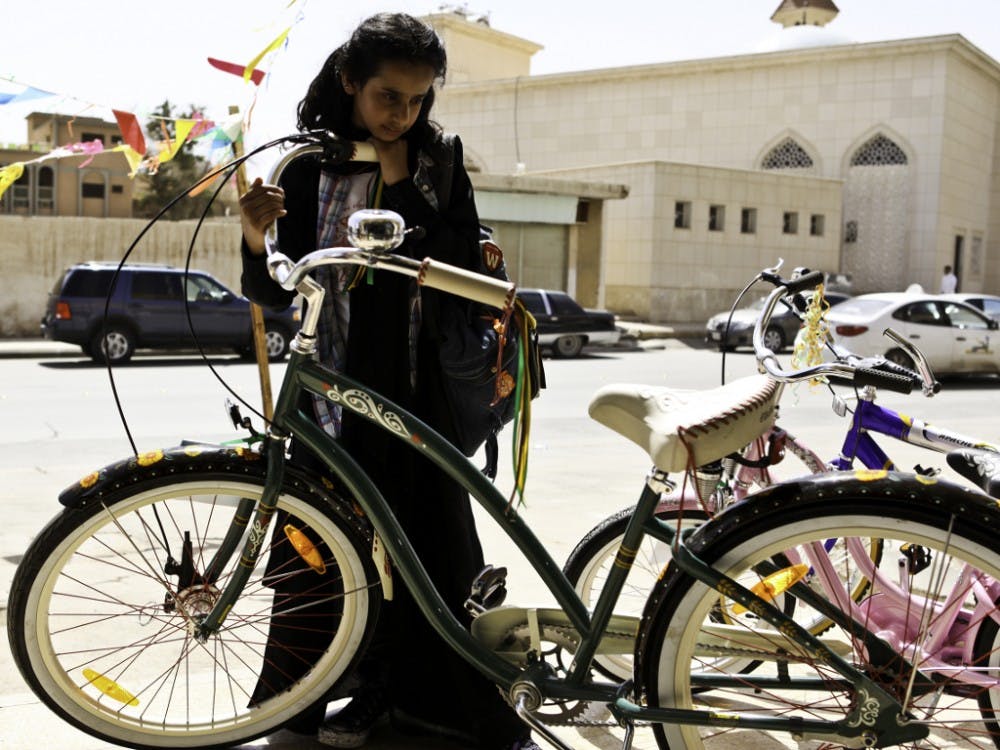“Wadjda” is a story about potential. It’s about a young girl diving into the unknown depths of womanhood. Will she stride through adulthood on her much sought–after bicycle? Perhaps her wish is childish, but it’s clear that it represents more than a childhood dream. Her determination for the costly bike—around 800 Saudi riyals—leads her to enter a Qur’an recitation competition. In Saudi Arabia, where women are prohibited from operating a vehicle and where male society frowns upon their interactions with men outside of their families, Wadjda’s naive desire for the simple pleasures of a bike ride is beautifully revolutionary.
Haifaa al–Mansour, the film’s female director, is no stranger to misogyny. To avoid mingling with men in public, al–Mansour directed outdoor scenes from the inside of a minivan. As dramatic as such a social context appears, she illustrates these dynamics remarkably with solid strokes that only hint at greater social themes. In one scene, Wadjda’s mother, Reem, visits a female friend at her job as a receptionist at a local hospital. Her sudden determination for a job disappears upon seeing her friend laughing with an unrelated man. It’s unclear if Reem condemns her friend due to internalized sexism, or if her anger instead reflects growing frustration with her powerlessness as a wife.
Questions like these create an undeniable amount of tension throughout the film. A seemingly simple scene captures this refreshing implicitness: early on, Wadjda befriends a young boy with a bicycle. Upon borrowing the bike, she insists he remove its tricycle wheels—ignoring his remarks on her inexperienced biking skills. Be it Wadjda’s yearning for a bike or her mother’s desire for a more fulfilling marriage, the film shows women who need no practice exercising their agency. Aside from a few missteps, they stride onward, crafting their own experience towards a better, more balanced future.

